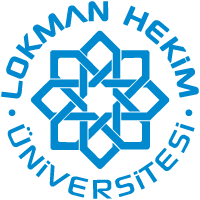Validity and reliability study of the Turkish version of the holistic well-being scale in individuals with cancer [Kanser hastalığı olan bireylerde Bütüncül İyilik Hali Ölçeği'nin Türkçe formunun geçerlik ve güvenirlik çalışması]
Özet
Objectives: It is thought that determining the level of holistic well-being levels of cancer patients during the treatment process, checking them at regular intervals, determining problem areas, and designing interventions will be important in terms of primary protection in mental health. This study aimed to determine the validity and reliability of the Turkish version of the Holistic Well-being Scale and to study its validity and reliability. Methods: A convenience sample of 230 patients being treated with cancer were asked to complete a questionnaire. The data were evaluated using SPSS 21 (SPSS Inc., Chicago IL, USA) statistical software. The translation was performed using a double forward and backward method. An expert panel evaluated the content validity. Verification of the structure obtained with confirmatory factor analysis was provided by AMOS 24.0. Psychometric testing included internal consistency reliability (Cronbach's alpha coefficient and split-half reliability validity). Results: The Cronbach’s alpha value of the scale was 0.73. The split-half reliability results were quite reliable (Cron-bach’s α=0.77). The model was validated by confirmatory factor analysis (χ2/SD=2.41, GFI=0.82, IFI=0.81, CFI=0.81, RMSEA=0.07, and RMR=0.674). Conclusion: The Turkish version of the Holistic Well-being Scale was found to be reliable and valid for Turkish cancer patients after some modifications. The Holistic Well-being Scale can be used in future nursing research and practice as an assessment tool for holistic well-being in patients with cancer. © 2020 by Journal of Psychiatric Nursing.

DSpace@LokmanHekim by Lokman Hekim University Institutional Repository is licensed under a Creative Commons Attribution-NonCommercial-NoDerivs 4.0 Unported License..













